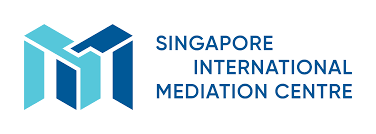Singapore Convention on Mediation Bill: What’s new from the second reading
With the passage of the Singapore Convention on Mediation Bill, Singapore is expected to be among the first few signatory states to ratify the Convention.
No Reservation
An important point is that Singapore is expected to embrace the Convention in its full rigour, without making any reservations – according to the Second Reading Speech by Senior Minister of State for Law and Health Edwin Tong SC, this means that:
- the Convention and Bill will apply to settlement agreements that the Government is a party to; and
- the Convention and the Bill will apply automatically to parties to a settlement agreement who may wish to enforce or invoke their agreement in a Singapore court under the Convention (parties may however agree, through the terms of their settlement agreement, to opt out of the Convention).
… there is a “need for an effective, efficient and harmonised framework to enforce cross-border
commercial mediated settlement agreements”.
Mediation Momentum
The mediation momentum is clear. As gleaned from the speech:
- It took only three years – between 2015 and 2018 – for UNCITRAL Working Group II to conclude an instrument dealing with enforcement of international settlement agreements resulting from mediation, when several past attempts failed.
- At the signing ceremony on 7 Aug 2019, 46 states signed the Convention. The Convention attained one of the highest numbers of first-day signatories for any UN trade convention, reflecting a recognition by the international community of the benefits that the Convention will bring. The signatories included the world’s two largest economies (the US and China), three of Asia’s 4 largest economies (China, India and South Korea), and five of 10 ASEAN countries (Brunei, Laos, Malaysia, Philippines and Singapore).
As of this date, there are 52 signatories, with 46 signing on the first day. By comparison, the New York Convention, which has played an instrumental role in the cross-border enforcement of arbitral awards, had 10 signatories when it first opened for signature over 60 years ago. The New York Convention has 162 parties today (most recently, Seychelles).
For the mediation momentum to continue, more States will have to sign on the benefits of the Convention, while States that have signed will also have an interest in ratifying the treaty, which comes into force six months after ratification by three signatories. As SMS Edwin Tong SC said, there is a “need for an effective, efficient and harmonised framework to enforce cross-border commercial mediated settlement agreements”.
As the Convention becomes more prevalent globally, more businesses will be able to benefit from the use of mediation to resolve their disputes.
This is the second in a four-part series on the Singapore Convention Bill. Read the first here. For queries and information about how SIMC can support you in dispute resolution, please contact us.

